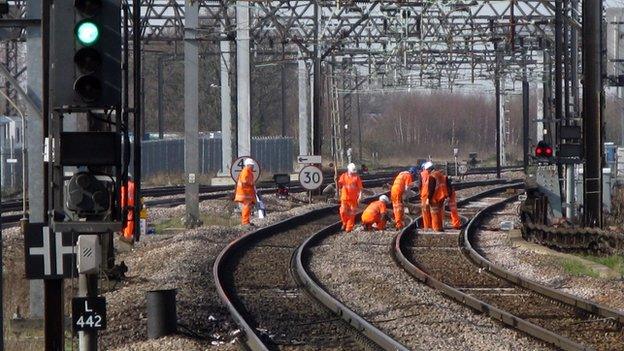Bank holiday rail strike facing legal challenge
- Published
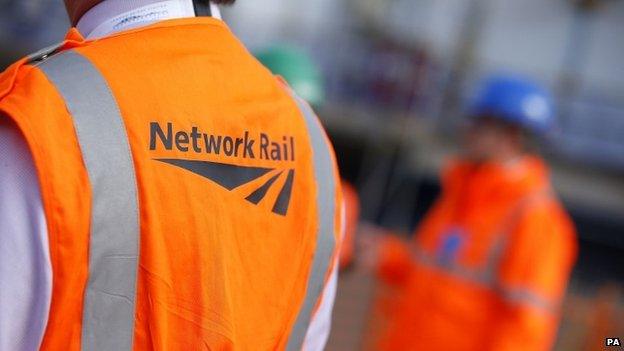
Talks with conciliation service Acas aimed at averting the strike over jobs and pay were due to take place on Tuesday
Network Rail has issued a legal challenge to the TSSA union over its bank holiday strike, saying there are "numerous defects" in its ballot.
Members of the TSSA voted to join RMT union workers in a 24-hour walkout from 17:00 BST on Monday over pay and jobs.
The ballot of the RMT, the largest rail union with 16,000 members, has not been challenged.
The TSSA's leader said: "We want to settle this around the negotiating table, not in the High Court."
Manuel Cortes added: "We are frankly puzzled as to why [Network Rail] are taking this legal route whilst talks continue today at Acas to solve this dispute and avert next week's strike action."
Six hours of talks between Network Rail, the RMT, the Transport Salaried Staffs' Association and the Unite union at Acas aimed at averting the strike took place on Monday.
A spokesman for Acas said afterwards the parties had adjourned to "reflect on their positions" pending continued discussions on Tuesday morning.
But Network Rail (NR) said on Tuesday: "We have asked the TSSA to withdraw notice of their industrial action as we believe there are numerous defects in their ballot information."

Analysis: Tom Edwards, BBC transport correspondent
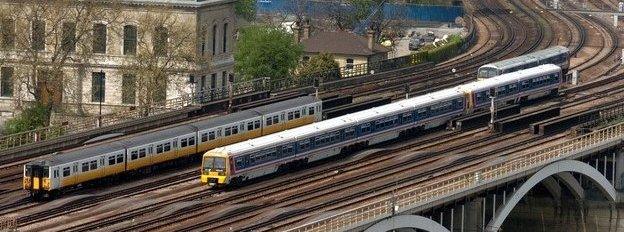
By quoting "numerous defects" Network Rail is threatening legal action to stop part of the strike.
It's not the first time NR has done this - it successfully took action against signallers in 2010. Back then, the RMT hadn't balloted workers at some signal boxes and had balloted others that no longer existed - presumably as its records were out of date.
What's surprising today is the timing of this intervention.
The pay talks to resolve this strike are still ongoing at Acas. While Network Rail will say the legal process is different to those pay talks - the move is bound to ruffle some union feathers and be seen as provocative.
And this legal action wouldn't stop the strike completely. The RMT has more than five times as many members as the TSSA on the trains, so if the strike happens it will still have a significant impact on commuters next Tuesday.

The 3,000 members of the TSSA, known as the "white-collar" rail union, voted in favour of action on Friday.
Its ballot, with a turnout of 52%, showed that 53% of those were in favour of a strike, with 79% backing other forms of industrial action.
The strike will see signallers, maintenance staff and station workers walk out on 25 May in the first UK-wide rail strike in 20 years.
Members also voted for a 48-hour ban on overtime from 00:01 BST on Monday.
'Democratic decision'
The RMT said NR's latest pay proposals were an "attack" on workers' living standards and its members also had concerns about safety.
General secretary Mick Cash said it would not allow NR's legal challenge to "cloud the real issues".
"It is highly damaging that instead of focusing on the talks process, Network Rail have opted instead to threaten a dash to the courts to challenge the democratic decision of rail worker members of one of our sister unions."
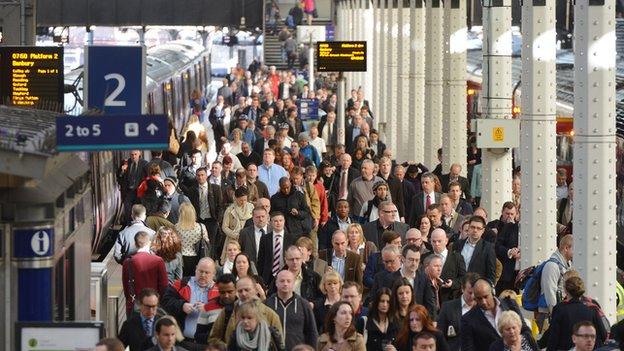
The strike will see rail workers walk out on 25 May, in the first UK-wide rail strike in 20 years
The TSSA members joined the RMT in rejecting a four-year deal, with a £500 lump sum per worker this year, followed by three years of increases matching inflation, as well as a commitment to no compulsory redundancies until December 2016.
Mr Cortes accused NR of being "more determined to impress [Transport Secretary] Patrick McLoughlin and the Tories than making a serious attempt to resolve this pay row and ensure that the trains run on time over the bank holiday".
Mr Cash said the RMT would continue to engage in talks while the union finalises the preparations for strike action.
Unite, whose membership includes 230 rail workers, is not currently planning to take industrial action but is taking part in the talks.
- Published15 May 2015
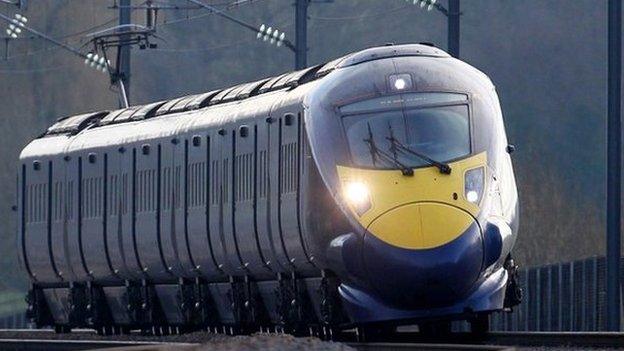
- Published12 May 2015
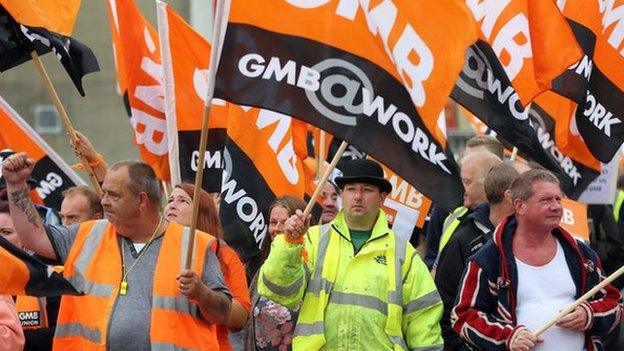
- Published12 May 2015
